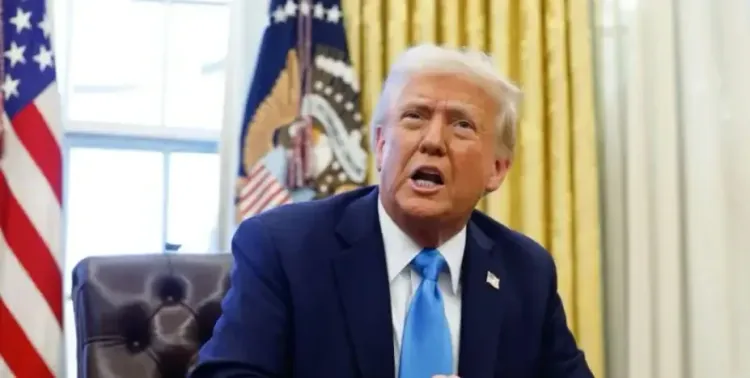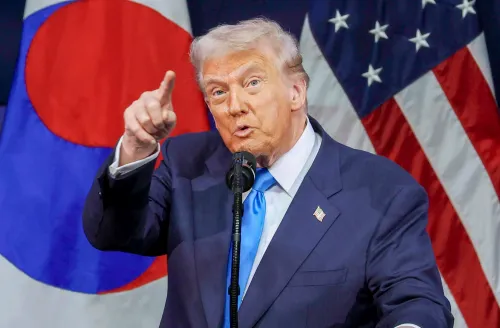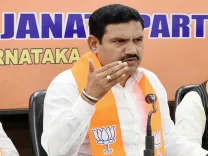Trump Indicates US May Not Protect NATO Allies Failing to Meet Defense Spending Commitments

Synopsis
Key Takeaways
- Trump questions US commitment to NATO for non-contributors.
- Article 5 has only been invoked once post-9/11.
- Trump advocates for increased defense spending from allies.
- US currently spends around 3% of GDP on defense.
- 23 out of 32 NATO members have met the 2% spending goal.
Washington, March 7 (NationPress) President Donald Trump has raised concerns that the US might not defend NATO allies who do not contribute adequately to defense spending, questioning a fundamental principle of the alliance.
"Well, I've communicated that to them," Trump informed reporters on Thursday in the Oval Office when asked about this potential shift in policy.
"I stated, 'If you're not going to pay, we're not going to defend.' I mentioned that seven years ago, and as a result, they contributed hundreds of billions of dollars."
Article 5 of the NATO alliance charter articulates that an attack on one member constitutes an attack on all. This clause has only been invoked once, following the September 11, 2001, attacks on US territory.
When asked if he planned to formalize this stance as US policy, Trump referred to it as a "commonsense approach," expressing doubts about whether other NATO members would come to the US's aid in the event of an attack.
"I believe it's common sense. If they don't pay, I'm not going to defend them," Trump asserted.
"I faced significant backlash when I expressed that viewpoint. You said, 'Oh, he's undermining NATO.' And honestly, the biggest concern I have with NATO … I know the leaders well; they're my friends, but if the United States faced a crisis and we reached out to them, saying, 'We have an issue. France, we have a situation.' A couple of others, I won't name. Do you think they'll come to our defense? They're expected to, but I'm not entirely convinced."
When questioned about the rationale for the US remaining in the alliance, Trump described NATO as "potentially beneficial" but "very unjust."
His remarks resonate with comments made during his previous campaign, which became ammunition for Democratic criticism.
Matthew Whitaker, Trump's nominee for NATO ambassador, told Senators at a recent confirmation hearing that the US's commitment to NATO would remain "ironclad."
Trump has consistently advocated for NATO allies to increase their defense spending, claiming that the US shoulders a disproportionate share of the burden.
NATO members are expected to allocate two percent of their GDP towards defense, but Trump has suggested that this target should rise to five percent.
The US currently invests around three percent in defense, necessitating a significant increase in the Pentagon budget to achieve Trump's target.
As of last year, 23 out of 32 countries in the alliance had met the two percent spending benchmark.
NBC News was the first to report that Trump was contemplating a change in how the US engages with the NATO alliance, favoring nations that contribute more to defense.
NATO has garnered attention amid the ongoing conflict in Ukraine, which commenced over three years ago with the invasion of their neighbor by Russian forces. Supporters of the alliance argue that the mutual defense agreement is what deters further Russian provocations against NATO nations like Poland. Sweden and Finland officially joined NATO last year.









